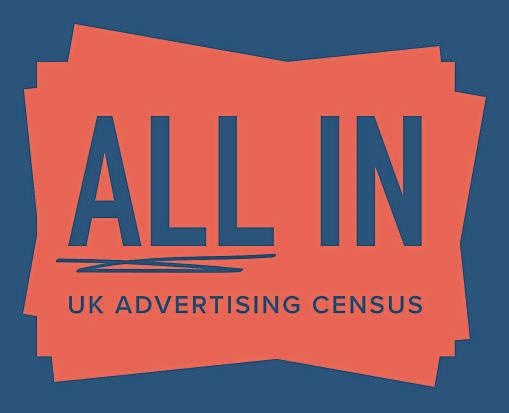
19 minute read
You wear it well



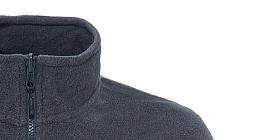
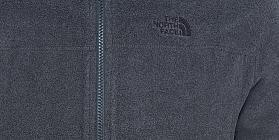

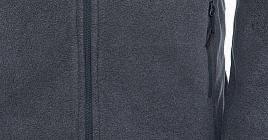

Clothing and bags remain mainstays of merchandise despite the lockdown. Product Media looks at the trends YOU WEARi t w el l
Promotional clothing and bags are two of the most popular buys in merchandise.
The reasons are simple – they both have great utility and desirability, and have enough variety to be able to offer a product for every target market and every budget.
According to Sourcing City’s annual Promotional Merchandise Industry Market Report, in 2018 bags were the top product group by market value, worth £179m, or 14% of the total merchandise market looked at by the report. Clothing was the ninth largest market by value, worth £36m, or 2.8% of the total market.
Drilling down into the appeal of bags and clothing, effectiveness as communication media is of great importance. While certain promotional products deliver the message to the office or home of the recipient, apparel and bags take it out into the wide world turning wearers and carriers into walking, and willing billboards.
It’s incredibly cost effective too. In its Global Ad Impressions study, the Advertising Speciality Institute (ASI) found that promotional T-shirts alone were owned by 80% of Americans. Headwear (69%), outerwear (67%), and polo shirts (65%) also clocked highly with consumers. When it came to bags, 73% of respondents have a promotional carrier of some sort.
Looking at T-shirts ASI also found that 63% of consumers kept promotional wear for a year, and 47% kept them for two years. This equates to 3,400 impressions generated during their life time, making each impression cost 2/10ths of a cent.
The story is similar for bags, which typically clock up 3,300 advertising impressions in their average 11-month use.
While all very impressive, the market for both products has shifted during the pandemic. With fewer people travelling to work, or anywhere, and fewer events taking place, the opportunities for promotion using clothing and bags has changed.
However, the emergence of video platforms as a medium for meetings and even exhibitions and conferences means that visibility and brand messaging remains important. STILL POPULAR
According to Clive Allcott, commercial manager of DTB the market for both bags and clothing has been severely affected due to the pandemic with multiple cancelled events leading to a minimal demand. However, there has still been business focused on current communication requirements.
“Instead of printing festival or promotional T-shirts, these have been turned into ‘Stay 2M apart’ or ‘Wash your hands’ style messaging as well as other demands for PPE,” he says.
Paul Morley-Smith, co-founder and director of The Outdoors Company says the pandemic has helped reconnect people with their outside environment.
“We’ve seen an ever-growing demand from our corporate customers for outdoor apparel and bag products during the course of lockdown. Personalised bum bags, wash bags and backpacks from brands such as Herschel and Fjallraven have become increasingly
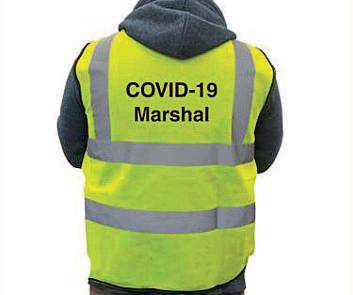


popular with our customers,” he says.
According to Rachel Salisbury, sales manager at Bags HQ, drawstring, polyester bags have been the bestsellers throughout 2020.
“This bag is a great all-rounder and an ideal give away for many different industries,” she says. “Foldable shoppers in both polyester and cotton options continue to be a great seller since the bag tax came in 2015, particularly our Bayford and Farrington shoppers.”
TRENDS
The year 2020 may be known as the year of the face mask and the hand gel dispenser, but clothing and bags have had a role to play.
Bags HQ’s Salisbury points to a hot trend in individual name personalisation. “Whilst this was initially used as a way of making corporate gifts more personal and thoughtful we have seen a surge in demand for health reasons too,” she says.
“After the first national lockdown ended and people returned to the workplace, we noticed an influx of orders on our Griffin Cooler bag printed with individual names.”
This simple solution helps to prevent cross contamination amongst colleagues and is an ideal place to store lunch and utensils.
Morley-Smith notes rise in demand for products that are premium, sustainable and ethically manufactured. The Outdoors Company is a trade supplier of high-end clothing, accessories and equipment to the B2B market, covering brands such as the North Face, Berghaus, Columbia, RAB, Montane, Arc’teryx and Patagonia.
“Businesses from a wide range of industries are requesting items from brands who invest heavily in the design and manufacture of clothing that is kind to the environment, kind to people and their communities,” he says. “Our biggest selling bag, The North Face Jester Backpack, is 100% recycled and this desire to kit employees out in sustainable clothing is only set to rise with companies keen to meet their CSR goals.”
Allcott notes a definite sway towards generalist workwear as people have become aware of the phrase PPE. Hi-viz has also led the charge in sales, linked to the pandemic of COVID-19.
The product mix for 2020 has focused on general workwear clothing such as hoodies, T-shirts and polos featuring informative branding based around health and safety information.
The undeniable front runner has been the facemask, he says. “Twelve months ago, this was a product that we would never have considered as a branding option let alone a ‘must have’ product.”
The marketplace has many different styles and types available from the disposable, the reusable and the professional medical mask. Personalised facemasks have been in great demand with transfer print proving to be a popular branding option due to its flexibility for design, multiple colours and quality finish.
DELIVERY CHALLENGE
With many users working from home due to COVID, delivery and fulfilment have all been affected in one way or another.
The Outdoors Company has had to change the way it works as a result of the pandemic, says Morley-Smith. “Our dedicated team has transitioned seamlessly and worked tirelessly with our brands to ensure that there is minimum disruption for our customers. Some stock had been slightly delayed for the first week in January, but we are now seeing deliveries from overseas return to normal.”
There have been extended timescales to deliver or have blank garments supplied, says Allcott. With most garment decorators working to ‘just in time’ processes, delays and stock issues have become a daily occurrence despite the efforts of clothing wholesalers.
Garment suppliers have had to deal with depleted staff levels and new COVID19 health and safety compliance. “As a factory we have invested substantial time, effort and resource in the protection of staff, our customers and making the workplace a safe environment to operate from while still being able to trade as near normal as possible,” he says.
Although times are tough, it has been an ideal time to invest in new equipment and branding development as well as to evaluate working practices and procedures.
Bags HQ has adapted fulfilment to ‘new world’ demands. With so many people now working from home it offers an individual address delivery and fulfilment service.
“Gifting has been hugely popular throughout the pandemic. Providing a well needed ‘pick me up’ for your employees is a lovely way to show your appreciation and promotes mental wellbeing during such difficult times,” says Salisbury.
Similarly, sending a personalised gift to customers at home is a fantastic way of boosting brand engagement and customer loyalty.
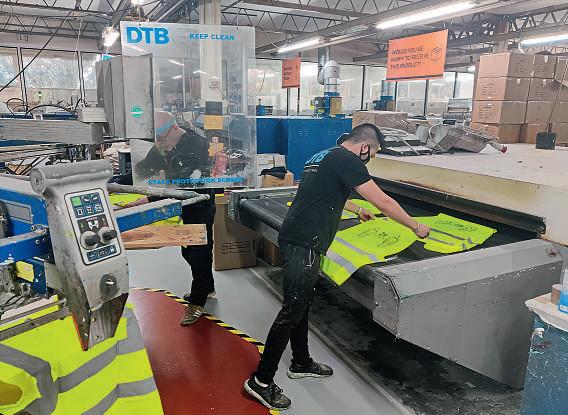

BREXIT
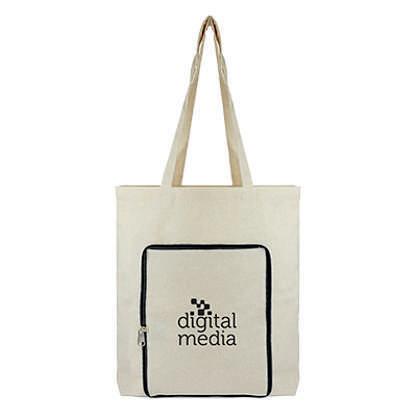
The overlay of the end of the UK’s transition from the EU and the commencement of a whole array of new trading procedures, has introduced new challenges.
Neil Horner, managing director, Laltex, says Brexit has complicated trade to the EU and Ireland.
“It is a relatively short period of time since the deal, but Bags HQ and all other divisions of Laltex are committed to creating a solution to ensure we can continue to supply the EU and Ireland, whilst also making the process of working with us as simple and easy as possible.”
With the main focus of attention being on the pandemic and survival for many businesses, Brexit slid off the agenda, not least because of changing advice and late breaking guidance due to the last minute nature of the deal.
Businesses are only starting to see the detail and how it will affect our marketplace, says Allcott.
“I am receiving regular correspondence from my supply chain informing me of between 12 to 15% increase on garments bought in from the EU along with administration fees for orders placed. These increases along with proposed delays in transporting goods back into the EU will have an impact on our market.”
For DTB, a European office in Poland is now supplying European customers, as well as UK customers with supply into the EU.
Morley-Smith says that for many of its customers, there has been no impact at all, but adds: “As with everything with Brexit, nothing is 100% clear, and for a small percentage of our European customers, we envisage that there could potentially be some minor issues surrounding taxes and tariffs.”
t g t nd for opean here nor ariffs.”
HOPES FOR 2021
Allcott says his conversations withwith industry peers lead him to the view view that, “April will be the new Januar uary” y” for both distributors and suppliers. iers.
“Masks and informative brandingnding areare here to stay for the near future. However,e. However, if we can see the hospitality sectorector getting back up to speed and the eventthe event calendar is fulfilled, distributor and and suppliersupplier businesses will be able to get back to theback to the levels of trade we need and expect.” xpect.”
One positive aspect of the pandemicpandemic has has been the heightened focus on sustainability, recyclability and of being custodians of the planet. “This sector of the market will grow year on year and we all need to play our role and be part of the solution,” he says.
In light of Brexit, many of The Outdoors Company’s brands have moved stock from EU distribution centres and set-up UK based hubs with increased stock levels, in order to minimise impact and ensure sufficient stock flow. “Distribution will now come directly to the UK from the Far East, aiming to improve efficiency and reduce standard lead times for our customers, ” says Morley-Smith.
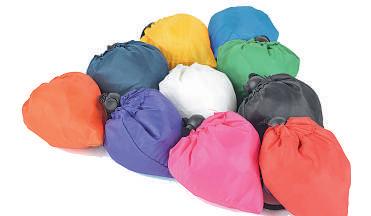

A greener approach to bags
The market for sustainable shopping into rolls of fabric. A new addition Director, Parit Shah says: “We solutions has never been greater. is is the the GRS-certified GRS certified TombiliTombili and and continually continually invest invest in in products products Since they were first taxed in 2015, UK UK Tausi,Tausi, which which can can fold fold into into a poucha pouch and and solutions solutions that that benefit benefit the the demand for single-use plastic bags s when when not not in in use. use. There There is is also also a a environment. environment. I am excitedI am excited about about has dropped by a whopping 86%. drawstring drawstring bag bag in in this this range range the the game-changing game-changing products products we we
But as with everything in life, called called the the TomboTombo and and all all of of are are launching launching in in 2021. 2021. WatchWatch there are definite shades of green. them them are are available available in in various various this this space.” space.” Specialist bag supplier, JuteBag colours. colours. Trade holds both the Fairtrade d and Global Organic Textile Standards (GOTS) certification with its own licence number which means the certified products are fully traceable. le.
A good example is its Kwenzi 100% % biodegradable jute bag. Unlike others, which feature a plastic lining, ng, this uses a natural starch lamination, on, which gives extra rigidity and makes the bag fully sustainable. The Recycled Koo cotton bag, meanwhile, is made from 100% poststconsumer waste. It’s a GRS (Global Recycled Standard) certified, 5oz recycled cotton shopper with long handles.
The rPET range, made from recycled plastic bottles, is another illustration of the company’s relentless search for greener solutions. In a closed-loop production on facility, bottles are shredded, ground nd into pellets, melted and processed
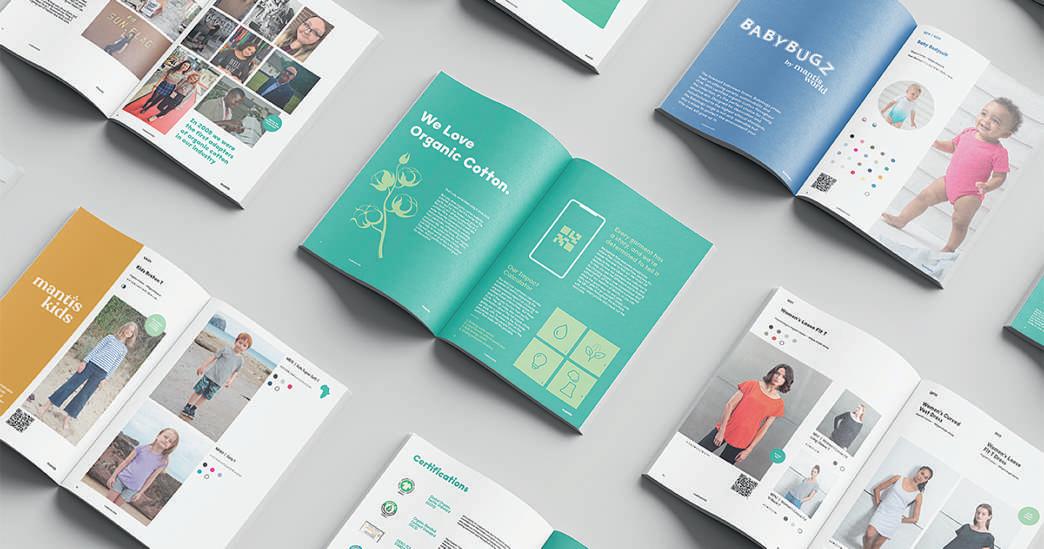


Green denim from Mantis
We’re all making an effort to go greener these days, and when it comes to bags, this should be no exception. Mantis has been leading the pack in sustainable apparel for 20 years, and its M195 and 196 Denim bags are a great choice for those looking for something that ticks the eco-friendly box and looks great at the same time.
Responsibly manufactured from 100% organic cotton, these bags are perfect for printing and look fantastic embroidered too. Available in two sizes, a regular sized tote that’s ideal for everyday use, and a roomy shopper style which is finished with a handy internal pocket. These bags are versatile, durable and complete with retail-friendly detailing.
The bags are just one example of sustainability from the company, which has celebrated 20 years in business. It has called attention to textile manufacturers and consumers buyers to take responsibility to make the right choice about where raw materials are sourced, with feature such as a traceability map to show where its cotton comes from.
This year, the company introduced QR codes to its garments to allow the wearer to see the journey of production and understand the origins of the cotton used. The codes feature in its latest lookbooks, allowing the reader to discover more about garments by scanning them with their
smartphone.
They connect to a white label site that shows the savings in water, emissions, energy and pesticides that have been made from choosing organic over conventional. It also gives an insight into the supply chain. The hope is that an interactive journey through the manufacturing process, plus an understanding of the positive environmental impact will help customers connect with the garments beyond the pages of a catalogue.

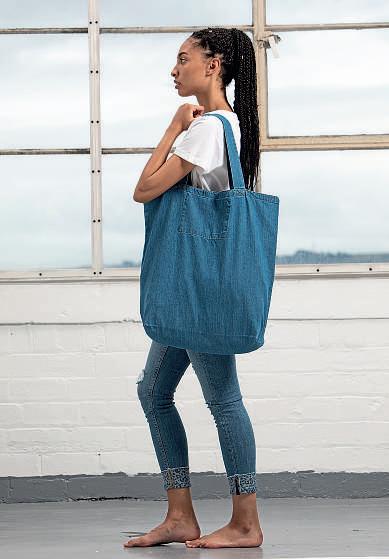
McLean steps up at PPAI
Promotional Products Association International (PPAI) has appointed executive vice president, Robert (Bob) McLean as interim president while it looks for a successor for Paul Bellantone, who is stepping down after more than 20 years helming the US trade association.
BPMA CEO Carey Trevill has already been in touch with McLean to continue the close collaboration between the two organisations.
“I’m delighted that Bob has been elevated to this interim role; joining in a similar capacity last year myself, Paul and his team welcomed me warmly to the industry and I’m looking forward to working with Bob in the coming months,” she said. “With solid connections with the PPAI in the US, PPPC in Canada and APPA in Australia, our partnership has led to sharing of insight and forecasts during this challenging period.”
The PPAI board has appointed executive search firm SearchWide Global to help identify the next leader of the organisation.


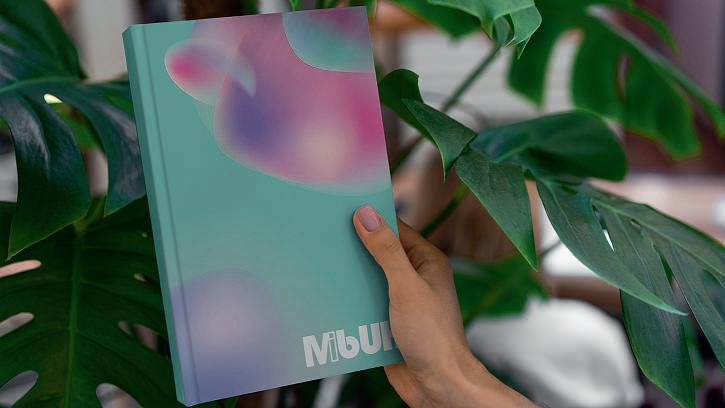
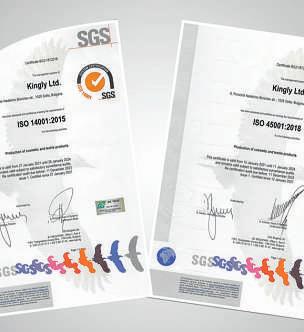
Successful SMETA audit for Kingly
European-based custom sock manufacturer Kingly recently conducted a successful SMETA Pillar 4 audit. This allows the company to further strengthen its ethical stance on product origin, supply chain ethics and responsible production processes.
Kingly was also recently accredited with ISO 14001: 2015 and ISO 45001:2018. Its next goal is to pass GMP22716, OEKO TEX and GOTS audits, said Rob Armour, managing director of the company.
ISO 14000 is a family of standards related to environmental management that exists to help organisations minimise how their operations affect the environment, as well as comply with applicable laws and regulations. Holders seek continual improvement.
Kingly has also created a new product fulfilment service to send merchandise directly to recipients.
New notebooks from Boosters
Mibuk is a British made casebound book from Boosters in four size options with customisable page options throughout.
All have a full-colour wraparound cover using a customer’s chosen image or artwork. Text page options include plain pages, pages with lines, grids, planners, perpetual calendars, or bespoke designs.
Logos can be added to each page to further personalise the book. If the customer wishes to use a bespoke design throughout, templates and artwork guides can be provided.
Mibuk is a brand and supply is to the trade only. The website mibuk.co.uk refers potential customers to the distributor of their promotional products. A personalised video can be requested with your company details included at no charge.
European facility for Listawood
Listawood has opened a new facility in the Netherlands to support the rapidly growing demand for its products within the European Union.
The company already exports to more than 80 countries worldwide. It opened its first factory in 1988 and has since become known for the development and use of award-winning, innovative new decoration methods and technologies. In 2012 it opened a wholly owned subsidiary factory in Southern India to enable it to manufacture its family of patent protected Duraglaze gloss, satin and anti-microbial photomug lines.
Alex Turner, managing director, said: “We don’t want to stand still – our strategy is to deliver innovation in the promotional drinkware market; presenting a stream of new processes and product ideas to supplement our comprehensive range of bestselling drinkware lines.”

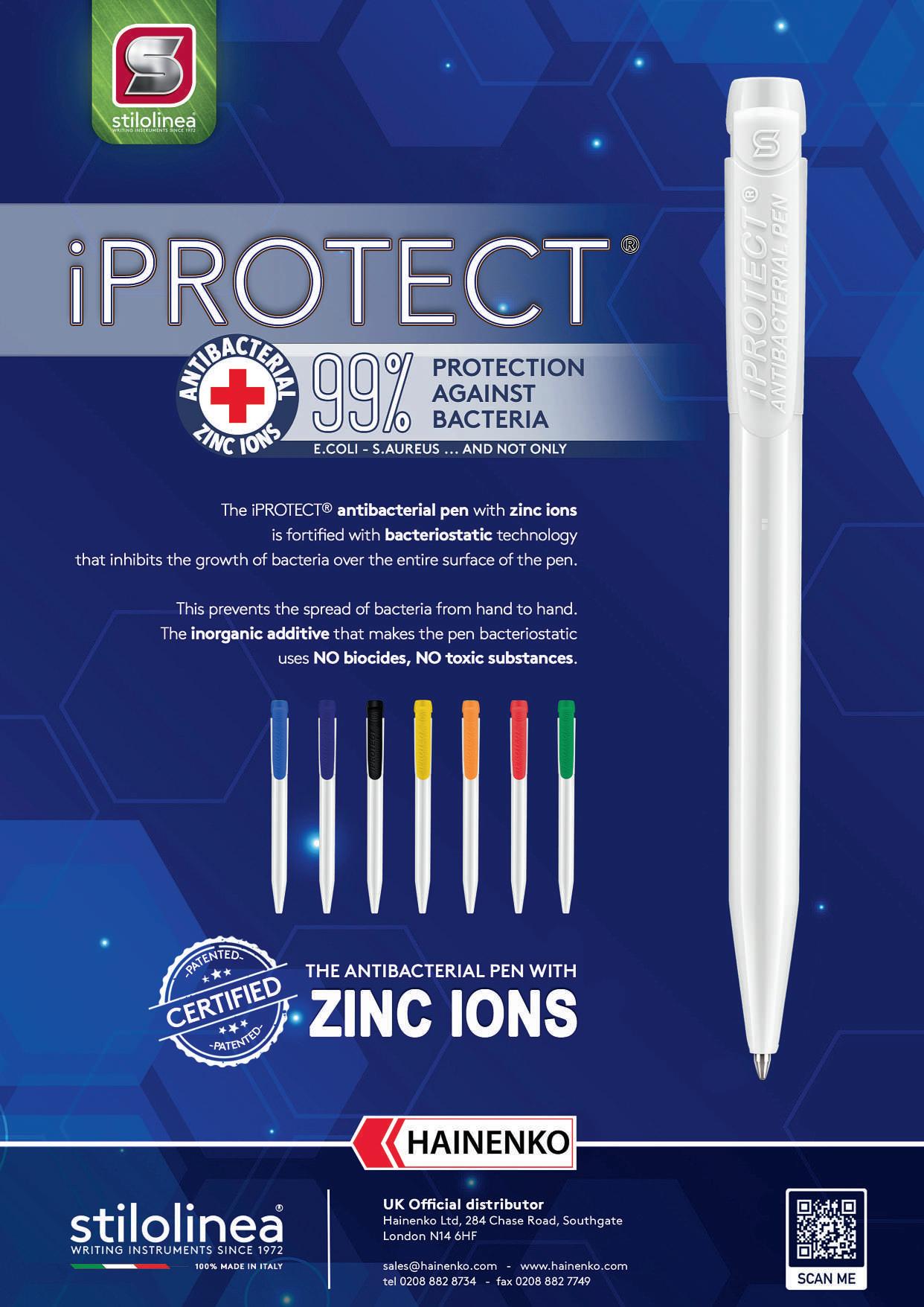

PRICING IN A RECESSION
It can be hard to stand your ground on pricing, but eroding margin only leads to a greater focus on price over value, says Peter Hill
Times are tough and may get tougher. So discounting prices is necessary to hang on to existing customers and win new ones – isn’t it?
No! Discounting is the very last thing you should do.
TO GOOD TO BE TRUE
Firstly, big price drops rarely lead to any significant increase in sales. Many high street and online retailers promote ‘50% off’ sales, but these are marketing techniques, where headline prices are inflated in order to present an apparent discount. Consumers aren’t stupid, and they no longer believe the honesty of these deals.
Secondly, even if lower prices might increase sales volumes, that is only half the equation.
GIVING AWAY MARGIN
A 30% margin business decides to
• Business sold 100 items at £10 each = £1,000. Profit £300 or 30%. • Decides to sell for £9 each, to boost sales. Profit now £2 per item. • Volume increases by 40%.
Great result? - No! • 140 items now sold at £2 profit = £280. £20 less than before. • Needed to sell 150 items @ £2 profit to make same £300. 50% more just to stand still

drop prices by 10% to increase sales. The key question is not whether sales volumes will increase, but whether they will increase enough to cover the discount being given to everyone.
The outcome varies at different margins as does the price sensitivity of products. But most businesses simply do not ask this question or work out the dynamics. If you think blanket price reductions will increase sales, they might. If you think they will increase profit, they don’t.
IS IT WORTH IT?
But what about one single customer where you will lose a sale unless you discount. Surely selling 100 items at £9 is better than zero items at £10? Let’s consider a few issues…
Gross profit is just the start. There are transaction costs of invoicing and debt collecting. Items are picked, packed and shipped, and people cost are part of every step. Many may find that the overheads involved in any transaction might reduce an overall gross profit of 30% to a net profit of 5%. Example. (Using same numbers on the left) • 100 items generated £300 gross profit. (30%) • Share of overheads approx. £250. Net profit £50 or 5% • Discounting by 10% reduces gross profit to £200. • Transaction costs remain £250, so now a net loss of £50 on this sale.
You might argue that the overheads would be the same with or without this sale, so you are £200 better off by making this sale, than not making it. Perhaps on a one off decision, but these are not one offs. Make this a common or even systemic issue and the impact can be catastrophic.
SO WHY IS PRICE THE BIG ISSUE?
Because we make it the big issue. If the sales process does not cover all of the other critical elements of the transaction, such as urgency, quality, reputation, design input, delivery, credit terms, refund policies and a host of other conscious or subconscious elements of the buying process, then the only issue to argue over is price.
BUT WE ARE IN A RECESSION, SURELY THAT’S DIFFERENT?
Yes. It is even more critical that businesses focus on margins and profits than at any other point in an economic cycle. You don’t want to be doing the same work for less money, and you certainly don’t want to be doing more work for less money.
Even in recession, there is a big part of every market that wants quality and service above price. In fact, for some customers these issues become more important.
For example, there is a stack of research which shows that the speed of returning a quote for a potential sale has a significantly greater impact on the buying decision than price does.
Don’t get cheaper, get better.

